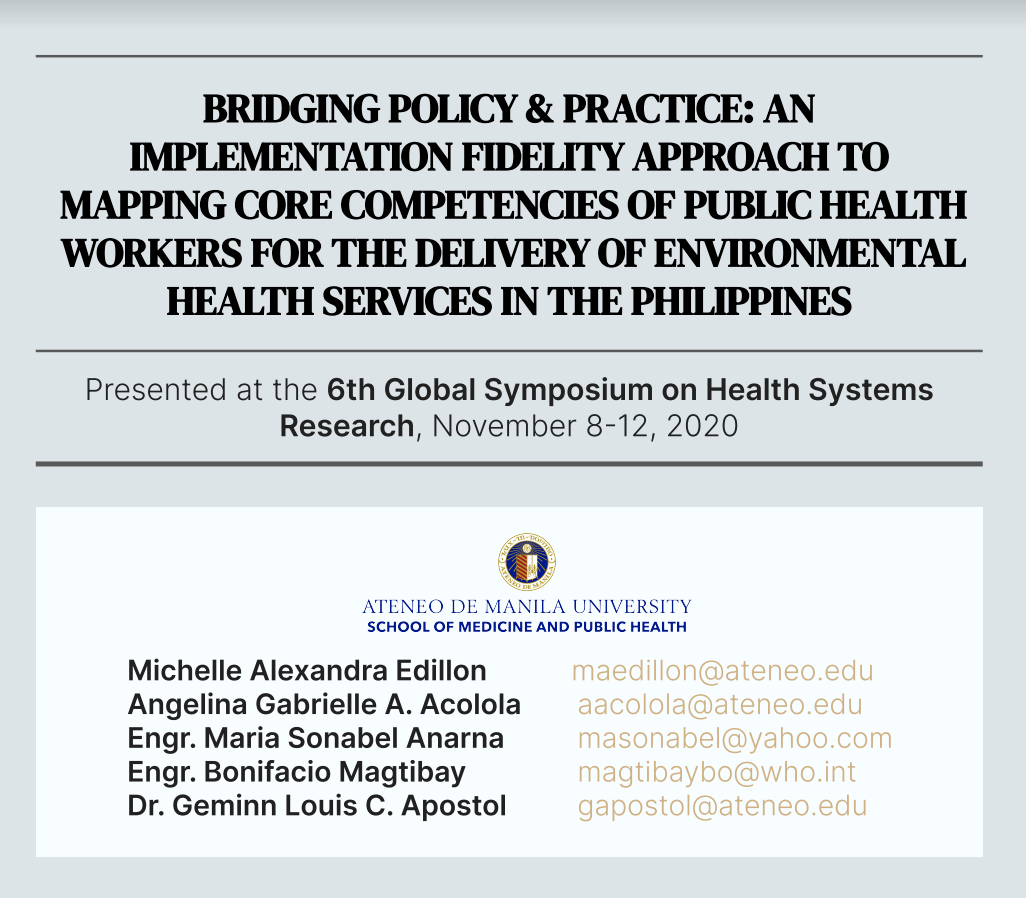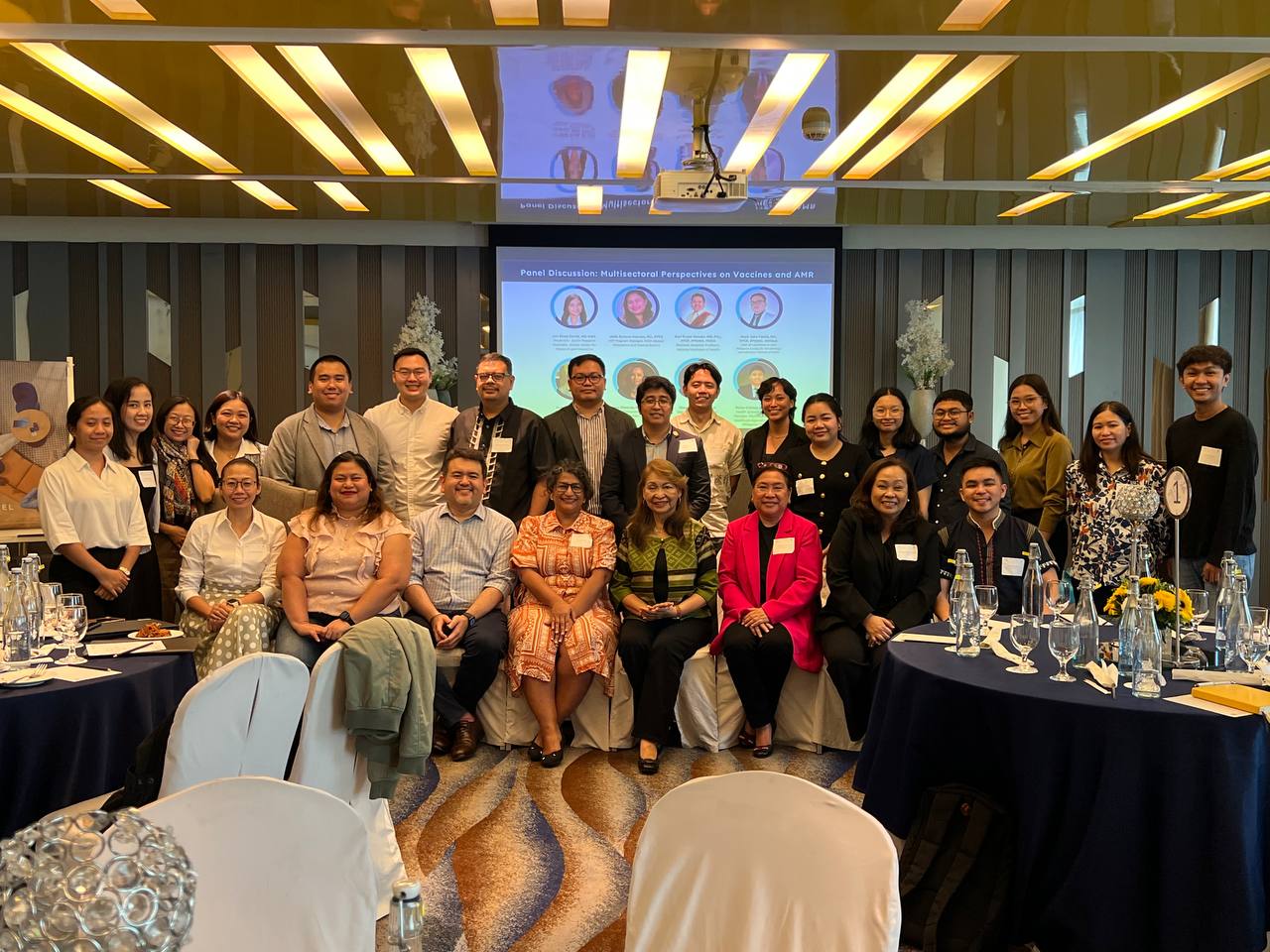
Bridging Policy & Practice: Mapping the core competencies of environmental health services in the Philippines
With the pandemic, we’ve taken meetings, classes, and many other activities online. This includes major conferences like the Sixth Global Symposium on Health Systems Research, which takes place every two years. Health Systems Global split the conference into three phases spanning November 2020 to March 2021. The current theme is: Re-imagining health systems for better health and social justice.
The Environmental Health team of ACRI was invited to present at the conference, landing among the top-scoring posters. The poster was entitled, “Bridging Policy & Practice - An implementation fidelity approach to mapping core competencies of public health workers for the delivery of environmental health services in the Philippines”. This was conducted in the context of a larger project, the development of an Environmental Health Service Delivery Package in partnership with the Department of Health and the World Health Organization - Philippines.
Globally, the Philippines ranks third with the highest risk of being impacted by environmental disasters and calamities. These events adversely affect people’s health, livelihood, and resources. In light of evolving health and climate risks, environmental health workers play a critical role in protecting and promoting public health. However, there is a lack of organizational standards and training for environmental health work. While local and international guidelines exist, these have yet to be standardized and localized in the Philippines.
To address these gaps, the team utilized an implementation fidelity framework in mapping out environmental health competencies. This approach bridges [1] what is intended by policy and [2] what is implemented and achieved in practice.
Findings serve as a stepping stone to identifying organizational and systemic capacities in protecting the public's health from the risk of a changing climate and environment, especially in at-risk and developing countries.
-

The Unseen Link: Vaccines and Antimicrobial Resistance in the Philippine Context
Antimicrobial resistance is already claiming lives, and the global pipeline for new antibiotics is shrinking. In August 2025, experts gathered to explore a critical question: Can vaccines become a frontline weapon against AMR? The science is clear—by preventing infections, vaccines reduce antibiotic use and slow resistance. But translating this into action means confronting data gaps, political barriers, and financing challenges. As one expert noted: "When we vaccinate, we reduce the frequency of these diseases. That means fewer antibiotics—used and misused." With no country in the Global South yet integrating vaccines systematically into AMR strategies, the Philippines has a chance to lead—if stakeholders can move from consensus to action.
-

Advancing vaccine uptake to mitigate antimicrobial resistance (AMR) in low and middle-income countries of South or South-East Asia
This project explores how strengthening vaccine uptake can serve as a key strategy to mitigate antimicrobial resistance (AMR) in the Philippines and across South and South-East Asia. By reducing the burden of vaccine-preventable diseases and the unnecessary use of antibiotics, the study aims to provide actionable recommendations for national and institutional stakeholders to better integrate vaccination initiatives into AMR control efforts, ultimately contributing to stronger, more resilient health systems.
